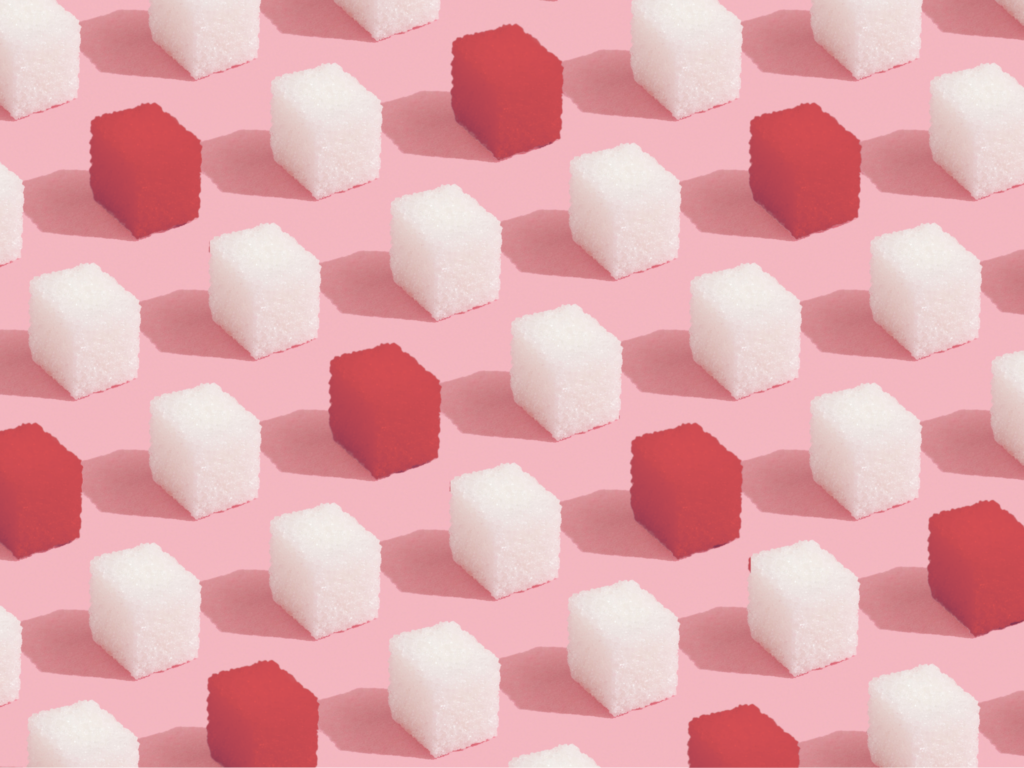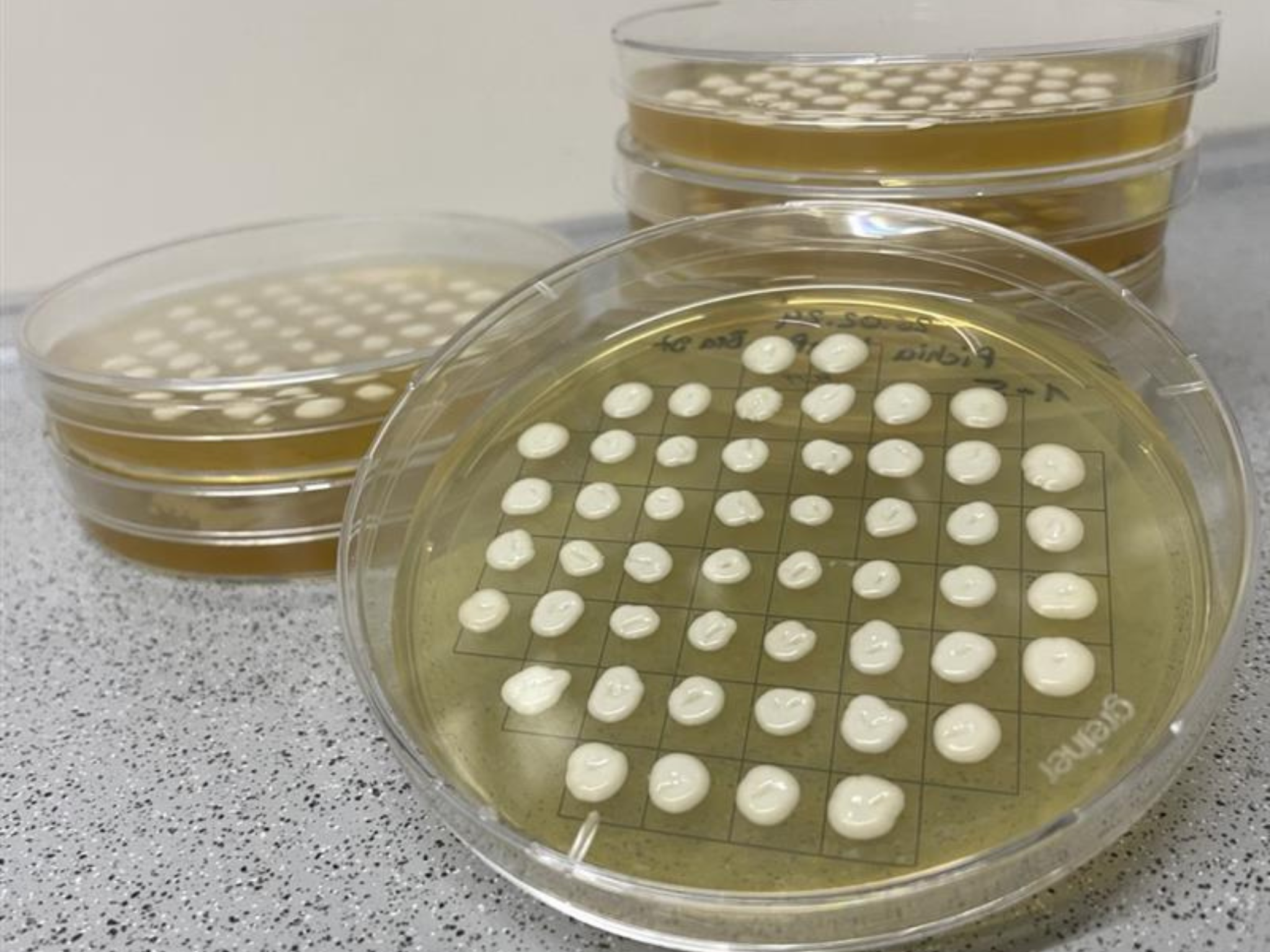Researchers Develop ‘Honey-Like’ Protein That’s 10,000 Times Sweeter Than Sugar
5 Mins Read
The latest entry in the sweet protein space, X3 is a honey-like sweetener developed by German researchers to cut the sugar content in packaged food and beverages.
As the race to replace sugar with better-for-you alternatives rages on, researchers at one German institute have developed a sweetener they claim outperforms conventional sweet proteins.
In a research project titled NovelSweets, scientists at the Fraunhofer Institute for Molecular Biology and Applied Ecology have teamed up with two companies to support the federal government’s efforts to reduce the sugar content in packaged foods and beverages.
Using microbial fermentation, they have developed a sweetener that’s about 10,000 times sweeter than table sugar, meaning just a few milligrams of the ingredient can achieve the same level of sweetness as the 106g of sugar found in a typical cola, replacing the high amount of calories without affecting the taste of the product.
A modified brazzein protein that tastes like honey

The ingredient, known as X3, is based on sweet proteins, a class of naturally occurring molecules derived from plants and fruits. Several companies are using these as a base to make protein-based sweeteners via biotechnological processes (like fermentation) for use as sugar substitutes that don’t affect blood glucose, insulin or the gut microbiome.
Like sugar, sweet proteins bond very readily to taste receptors on the tongue, through which humans perceive flavours as sweet. One of the best-known sweet proteins is brazzein, found in the West African fruit Oubli, and the focus of startups like Cweet, Sweegen, Novel Foods Group, and Oobli.
Brazzein is 500-2,000 times sweeter than sucrose, but supply is a major problem. The remoteness of its source locations makes harvesting from plants on a large scale a challenge, contributing to what is already a lengthy and laborious process with little yield.
It also feels scratchy in the throat, according to Stefan Rasche, a researcher at Fraunhofer IME. To counter that, he and his colleagues are developing protein varieties based on the protein sequence of brazzein, optimising them for pH and temperature stability, sweetness, and flavour.
“We’re changing the protein sequence to prevent these kinds of undesirable effects. The goal is a better sensory experience, without any unpleasant flavour or aftertaste,” explains Rasche.
The NovelSweets project relies upon microbial fermentation. The gene encoding the sweet protein (which contains a description of its amino acid sequence) is implanted into yeast cells, which then proliferate in a bioreactor to produce as much sweet protein as possible. The protein is then purified and dried to be used as a sweetener that tastes similar to honey.
“X3 is impressive for its improved taste compared to the artificial sweeteners that have been available to date, as our tastings with test subjects have shown,” says Rasche. “Since it is entirely sugar-free in addition to having practically no calories, our modified brazzein version does not cause cavities or increase people’s blood sugar levels.”
Germany looks to cut sugar as alternative industry gains popularity

The World Health Organization (WHO) has set a recommended limit of 50g of added sugar per day, equivalent to about 12 tablespoons. But the omnipresence of sugar in packaged foods like cereals, smoothies, juices, sauces and soft drinks makes this a hard target to achieve. A single 330ml can of Coke alone contains 33g of sugar, for example.
Germany, meanwhile, is one of Europe’s largest consumers of sugar, which is a major contributor to chronic diseases. Around half of the country’s population is overweight, and nearly one in five people are obese. Meanwhile, 10% of its citizens have diabetes (mostly type 2), and these numbers are on the up.
In 2018, the federal government adopted a national strategy to reduce sugar, fats and salt in processed foods, as well as innovate with healthier solutions. It aims to cut sugar in children’s breakfast cereals by at least 20%, and in soft drinks and sweetened dairy products for kids by 15%.
And while there has been a voluntary commitment from the beverage sector to decrease sugar in soft drinks since 2018 too, progress on achieving significant reductions has been insufficient. Data from the Federal Ministry of Food and Agriculture (BMEL) this year found little change in the amount of sugar in several processed foods and drinks, prompting the government to call on experts to develop new targets for manufacturers by the end of 2024.
The NovelSweets project has seen Fraunhofer IME work with nutrition company MetaX Institut für Diätetik and enzyme optimisation specialists Candidum. Their initial plan for X3 is to use it as a substitute for drinks.
MetaX is testing and developing the first range of products with the fermentation-derived sweetener, including a low-protein beverage powder made with cocoa. But before it can progress towards commercialisation, the manufacturing process needs to be optimised alongside further product validation measures to tap into the full potential of the protein.
The research effort comes amid a boom in sweet protein and sugar reduction startups, who are taking on a $7B sugar alternatives market that’s riddled with health controversies. Aspartame, for instance, was classed as a possible carcinogen by the WHO last year, while erythritol is linked to increased risks of heart disease and stroke.
Researchers have previously touted the benefits of a soft drink tax in Germany, which could prevent nearly 250,000 people from developing type 2 diabetes and save up to €16B in national economic costs over the next two decades.



